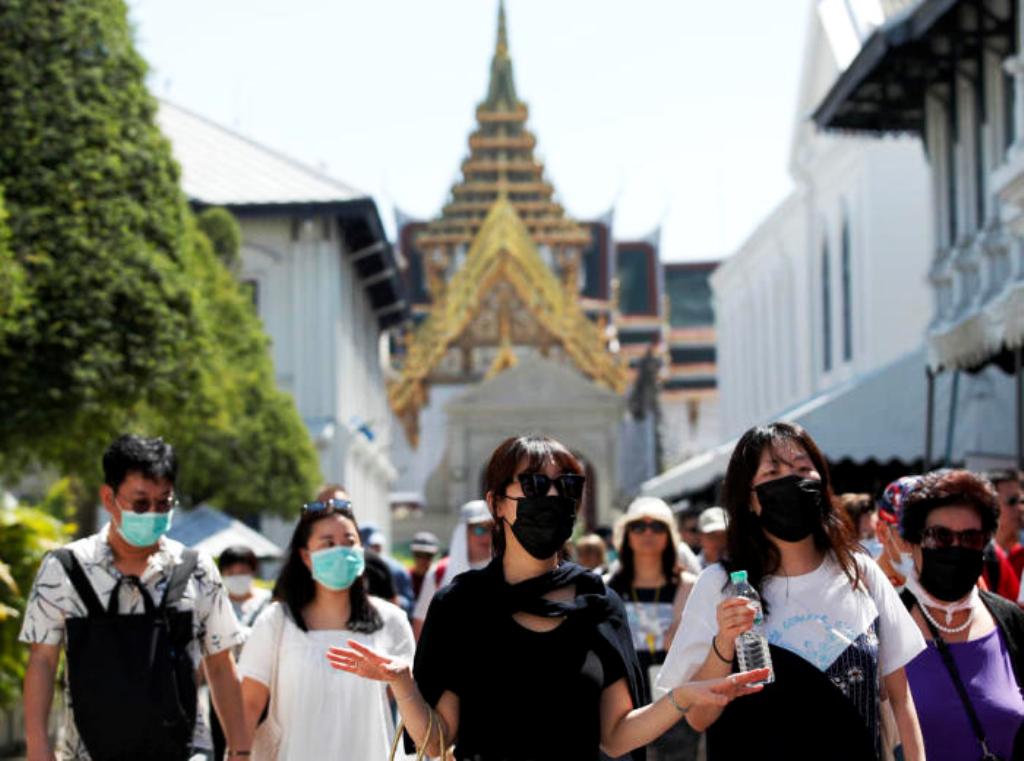Business
Thailand’s $15 Billion Digital Wallet Handout Faces Growing Criticism

Former central bank governors in Thailand have joined economic experts in pushing the government to abandon its centerpiece $15 billion Digital Wallet handout policy, saying that it risks inciting inflation and undermining long-term budgetary discipline.
According to a declaration signed by 81 economic experts, the “digital wallet” programme, which would offer most Thais a one-time giveaway of 10,000 baht ($270), will do more harm than good.
Among the prominent signatories were Veerathai Santiprabhob and Tarisa Watanagase, two former Bank of Thailand governors who have joined a growing backlash against Prime Minister Srettha Thavisin’s most ambitious economic plan yet, just two months after he ascended to power to end a political impasse following a May general election.
The statement also mirrored current central bank president Sethaput Suthiwartnarueput’s concerns, calling such expenditure “inappropriate.” Just last week, the Bank of Thailand raised interest rates to their highest level since 2013 in order to ward off inflationary pressures caused in part by Srettha’s planned stimulus.
The digital wallet programme, which is planned to launch in the first quarter of 2024, is Srettha’s key pre-election pledge. Thais over the age of 16 are eligible for the handouts, which must be spent on particular goods and services in their neighbourhoods within a certain time frame.
According to government authorities, the multiplier effect on the economy may be four times the cost of handouts, boosting economic growth to 5% in 2024, up from 2.8% this year.
Srettha, a former property developer who also serves as finance minister, confronts the challenge of improving GDP in the face of dwindling demand for Thai commodities from its biggest trading partner, China, and weak spending by foreign tourists.
Expectations that the gift would function as a fiscal multiplier to spur economy are “deluded,” critics of the plan claimed in an Oct. 5 statement, because the money is best spent as direct public expenditure and investment.
“No one can make money appear. They wrote, “There is no money growing on trees or falling from the sky.” “Ultimately the people will have to pay back the price, whether in the form of higher taxes and/or higher costs of living due to inflation.”
Alternatively, according to Anusorn Tamajai, director of a research centre at the University of the Thai Chamber of Commerce, the government should narrow the program’s recipients and limit the handout to those in need.
When asked to react on the academics’ statement, Srettha told Bloomberg on Friday that he was open to hearing other points of view but that it was “impossible” to limit recipients to specific groups.
“We will listen to everybody, including the people who are eagerly asking me when it will be rolled out,” she stated. “We might still adjust it or make it more suitable.”
World Bank Downgrades Thailand’s Economic Growth Forecast
The World Bank issued a report, reducing its economic growth prediction for Thailand this year to 3.4%, suggesting a weaker recovery than other ASEAN countries.
Due to China’s ongoing slowdown and global uncertainties such as high interest rates and sluggish trade, the World Bank has revised its growth predictions for developing countries in the East Asia and Pacific region downward.
Thailand’s economy is recovering at a slower rate than its ASEAN peers, and decreasing exports pose challenges for the Thai economy.
The World Bank has lowered its economic growth forecast for Thailand for this year from 3.9% in April to 3.4% now, following a 2.6% expansion in 2023. In addition, the bank anticipates 3.5% growth in Thailand in 2024, which is slightly lower than the prior projection of 3.6% in April.
Tourism and private consumption will dominate the Thai economy in 2023. However, exports are predicted to fall 2.1% in US dollars due to lower demand from important trading partners.
The delay in forming the Thai administration following recent elections has caused a slowdown in both public and private sector investment.
According to the analysis, tourism and domestic spending are projected to overcome foreign demand deficits, with foreign tourists predicted to return to pre-COVID-19 levels by the end of 2024.
According to the World Bank, Thai inflation will fall to 1.5% in 2023, which is lower than in most developing market nations. This is because global energy prices have fallen and commodity prices have remained constant.
Thailand’s public debt is expected to remain high in 2023, topping 60%, and the government will return to a current account surplus of 0.5% of GDP this year, ending two consecutive years of deficits in 2021 and 2022.































